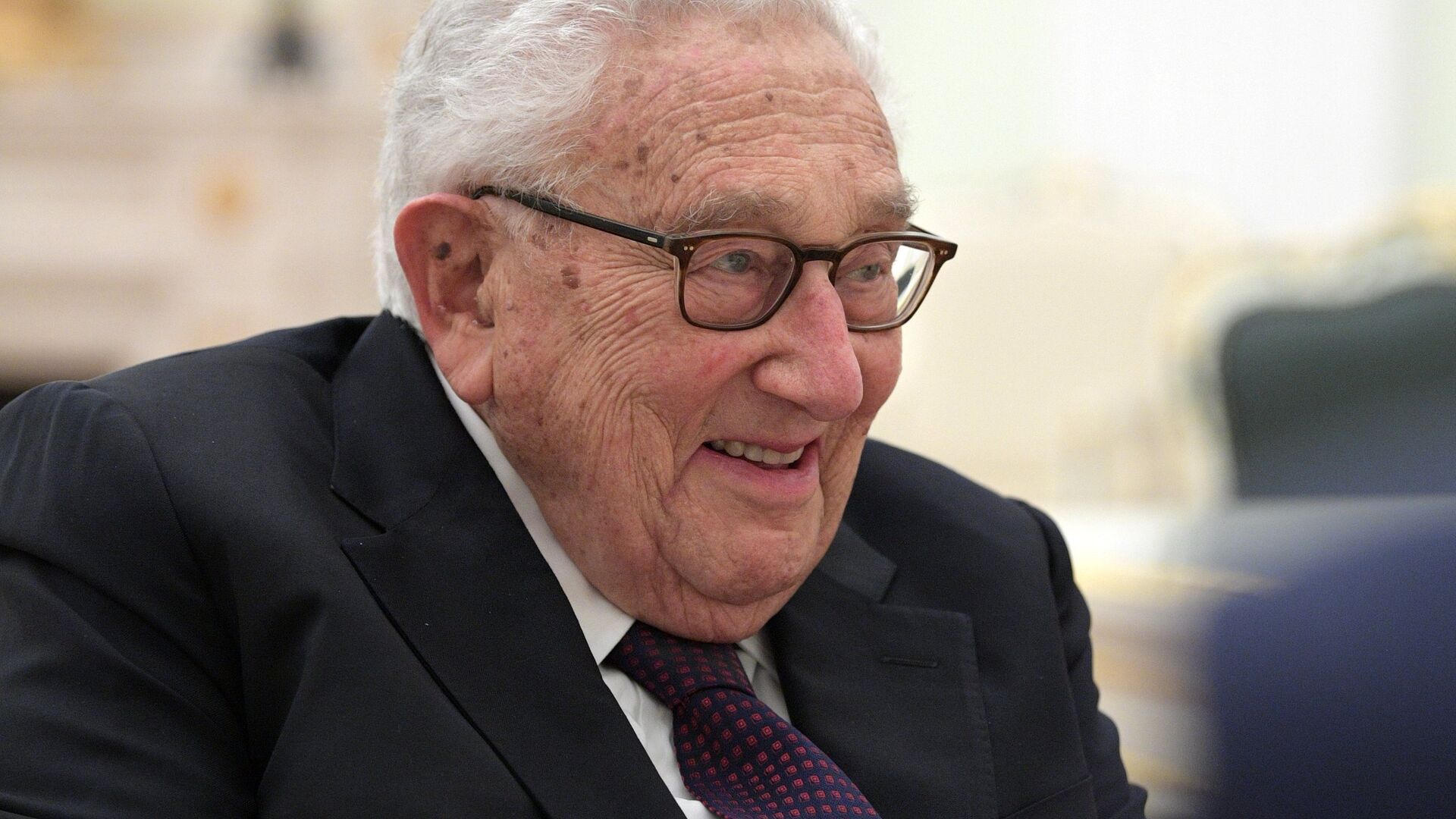Henry Kissinger: 'All-Out Attack' Against Taiwan by China Unlikely to Take Place in Next 10 Years

© Sputnik / Alexei Druzhinin
/ Subscribe
Henry Kissinger, who served as the US Secretary of State from 1973 to 1977, believes that China will not attack Taiwan in the next decade while giving insights on past, present, and future relations between the United States and China.
In a recent interview with Fareed Zakaria, Kissinger asserted his belief that mainland China’s seizure of Taiwan is a key tenet of Chinese policy. However, he offered a level of nuance based upon his experience with previous Chinese leaders, saying, “ A point was reached where at a conversation with Nixon, Mao said, we can wait maybe even 100 years, someday we will ask for it, but we do not need to discuss it at this moment.”
Kissinger suggested that an imminent attack on Taiwan by China is unlikely, saying, “I don’t expect an all-out attack on Taiwan in, say, a ten-year period, which is as far as I can see.” He added, “I think it is perfectly possible that if the confrontation keeps growing that the Chinese will take measures that will weaken the Taiwanese ability to appear substantially autonomous.”
Kissinger served as the secretary of state for for former US President Richard Nixon, and had helped open relations between the two nations. From the beginning, the status of Taiwan was a dicey topic and has remained a point of contention between the United States and China.
The former officials stated his belief that the United States and China need a “principal goal of avoiding confrontation.” One of his primary concerns was the unknown consequences of the nations’ advanced military technologies.
Kissinger said, “China and the United States are the two most technologically advanced countries at the moment. They both have enormous capacity for destruction, and some of these capacities are artificial intelligence, so they do not know what the consequences are of using them.”
While the former architect of major actions in expanding the failed Vietnam War is optimistic that a military confrontation between the United States and China is not imminent, he voiced concern over growing hawkish sentiment in Washington towards Beijing.
“Everyone wants to be a China hawk, everyone assumes that China is determined to dominate the world and that is its primary objective […] but there should not necessarily be an automatic rivalry and competition," he said.
“I think [US President Joe] Biden began to move in a direction of a different road, that does not mean it is yielding to China, it is to try to find a level in which we can talk about those things known to be common, we should have a principal goal of avoiding confrontation.”
The state of Chinese and American relations has more recently been brought to the forefront due to Biden and Chinese President Xi Jinping’s Monday virtual summit.
Kissinger is reported to have been an integral part of the two nation’s opening relations in the 1970s. As a Nobel Peace Prize recipient for assisting in negotiations to end the Vietnam War, he stated that “the challenge in any conflict is not how you begin it, but whether you know how to end it."


